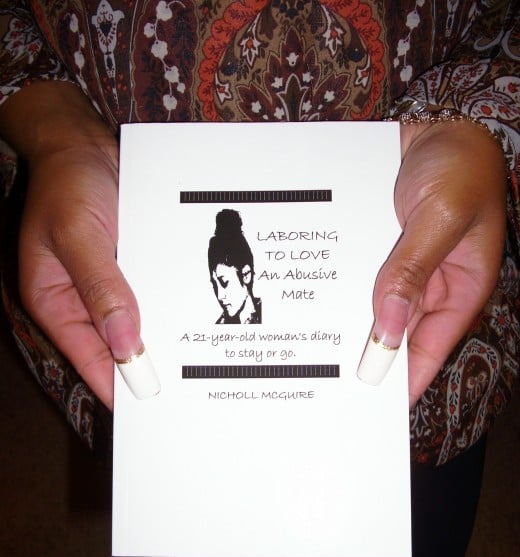The Good, Bad & Ugly About Writing Online

Do You Hear Your Voice as a Writer?
When you were in school, college, or elsewhere learning to write, you heard what others said about how you should write. But now that you are older, wiser and independent when it comes to writing, are you still hearing the voice of your teachers or has that voice become your own?
There are no limitations when you finally realize that you have a voice when it comes to writing. You aren't the least bit interested about what others have written and how your writing must conform to whatever you have been taught. Sure, you respect the basics, taking care to punctuate properly, make your points clear, stay on point, etc. but aside from all of those things, there is that desire to communicate what's in the heart and to do it according to your standards.
Yet, if the voice is suffocated with others' voices it can be quite difficult to hear yourself think. You become challenged when it comes to structuring your work. You write, you pause, you review, you go back again, you write, you pause, this time you walk away from the computer...
Sometimes we writers don't go back to the work, there is a disconnect. Was it our voice to begin with, our drive to write what we started out writing, or did someone or something else drown out what we really should have, could have written?
Connect with your voice. Spend needed time listening to you. This starts before you even sit before your computer screen and start tapping away. Feel the work, inhale it, exhale, and tune in to the voice within.
God bless the scribes!
Writers Don't Have to Respond to Feedback--Good, Bad or Otherwise
When we writers pen our thoughts, we just do it! Most of us who have been writing since childhood, just don't put much thought into a question like, "Did you ever consider what would people think when you wrote XYZ?" Should we? The question comes off, depending on whose asking it and how their asking it, as if we are in trouble or we are being adored. Why should we care? If something is keeping us up at night nagging us to write it, should we be concerned about the words making an impact? I leave that up to the God I serve. The way I see it, if the spirit moves you to write something significant, then by God, write it and let him be concerned about how it moves or doesn't move others. (People didn't keep the saints in the Bible from talking--threats, jail, beheadings, etc.)
Anyway, if we did give any thought to what people might say (or do,) then we would be in poor shape mentally and quite possibly physically (like staying in the house often hoping not to bump into anyone on the street who read what we wrote.)
So I think of the person who enjoys leaving insulting feedback and I ponder, "Should I bother responding?" I learned something over the years (the hard way) since writing online and it goes something like this. "Who am I when it comes to writing? Am I the writer that is looking to debate with my audience? No. Am I the writer that is looking to say what needs to be said and then on to the next topic of conversation? Yes." How liberating was this simple self interview for me, because it told me two things: I was not responsible for people's feelings and I never had to feel obligated to respond to anyone's feedback no matter how many websites had a comment section attached to my writings.
In the beginning of my online experience writing, I tried to wear all hats for everyone--my heart, my mind, my faith, my checking account, my relatives and friends with their bright ideas, etc. "Write this type of article. Respond to this feedback. Market this article. Add this link to this article. Submit this article to this website." the voices were everywhere! Sometimes I couldn't sit on my private throne at home in peace without a notepad!
Then one day after many websites were open on my computer screen along with many Microsoft document windows open with text here and there behind them, I realized I had too much on my plate to think about since the only title I ever wanted to have online was "Writer." I decided that I would wear one hat maybe even two from one day to the next but not all of them. How was I going to be researcher, writer, editor, marketer, feedback monitor and commenter and everything else (like mother of four) with ease and nothing would not fall by the wayside every now and then?
In the process of downsizing my titles, I realized it isn't always wise nor beneficial to respond to everything that anyone says online including those emails from relatives and friends from yesteryear.
When feedback is good or bad it can motivate you, give you ideas, and so on. However, too much of anything isn't a good thing. Sometimes you can spend too much time reading and responding to feedback (while cussing and fussing about it to a relative or friend) that you forget to tend to the very thing that caused you to get the feedback in the first place, the writing.
What Does it Take to Get Self-Published?
I thought I would take the time to write this candid entry about getting one's work self-published since I have been there and done that already several times or more. To begin, let me tell you that without a good plan, dedicated time and money in your pocket, your project will go nowhere.
The Good Plan
When you have a thought for a book idea in your mind, you need to write it down and avoid talking so much with others about it. You see, sometimes we can trick our minds into thinking we are accomplishing something by running our mouths about it when we are doing nothing but providing lip service. Some people will argue, "Well I need to tell people about my idea because how do I know whether it will be a success or not?" There are plenty of examples out there where writers took their best work to publishers only to be told that their ideas were no good. However, when they took the route of self-publishing, they found that their idea was worth gold! So you can't rely on what people tell you. Conduct research and let what you find educate and motivate you to pursue your idea, change it or trash it.
Create an objective or mission statement that reminds you of your intent and also write down a book summary. Is this a memoir, nonfiction, thriller, drama, romance, family history, etc. type of book? What is your reason (mission) for writing this book? It can be a shallow reason like "Aunt Mary told me I should." or "People say I can write and so I should go ahead and do it." Those are motivational reasons but not enough to keep you on a mission that may last months or years. Next, you need to ask yourself the following, "Do I want to tell a story that calls people to action? Do I want to give them an experience?" Your mission statement should include what the book is about, why you are writing it, and what you hope people will take from it. Of course, you can't control the reactions and/or actions of people so this will most likely change, but you should have some idea.
Set Aside Time
Dedicate time to write your book. Pencil your writing time in your calendar and let others know, who may be affected by your work time, that you have started a part-time job. Think of someone or hire a professional editor to help you edit your book once it's complete.
You will need to surf the Internet for companies that provide services for self-publishers. One that comes to mind is an Amazon affiliate, Createspace.com, which has free software for you to design your book cover. There are also vanity publishers like Blurb.com which specializes in photo books. They also provide free software you can use to layout your book.
Writing books are a time-consuming job, but definitely worth the excitement you feel when it is complete and resting in your hands!
The Cost
It does cost to create a book, but it doesn't have to be expensive. I have personally seen people create books from all sorts of paper which has been neatly stapled, glued, or reinforced with string, because they simply didn't have the money to go with a good printer. Depending on who you plan to give your book, will determine what printer you choose. There are those printers who will not only print your book, but help you market it. Expect to pay a thousand or more for their complete packages (sometimes they include a copy-editing service.) This may be within your budget, but then again maybe not. If not, you will need to decide how you will market your book on your own. Make a list of various types of marketing techniques you will use to sell your book. From book signings to speaking engagements, authors have found many ways to sell their books.
Research is crucial when putting together your book such as: choosing a title, creating your bio, writing your sales copy, determining cost etc. Ask yourself a lot of questions and do the research to get your answers. When you skip crucial steps (or don't perform research,) you will find yourself often confused and may be disheartened about your project. So don't skip steps in your plan and do research.
Lastly, visit forums, read writers' guides, talk to people (once you are confident and have a writing schedule underway) and also watch spending a lot of time on the Internet. Too much Internet surfing, chatting, and blogging can easily distract you from your goals.
My first book was Laboring to Love an Abusive Mate for which I dedicated a blog.
Here is an excerpt from another book I wrote, When Mothers Cry.
What is Your Inspiration Today? Find Images and Reflect

5 Things Writers Face When Writing Online
You may have collected some of your poems, essays, and other writings from yesteryear and posted them online already or maybe you have been considering it but haven't gotten around to it yet. There are some things you will want to be mindful of before you post your writings on the Internet.
One. Strangers aren't the only ones reading your writing, people you know will too!
If you are using your own name and telling people that you write online, most likely at some point they will surf the Internet seeking what you write. If you don't want people analyzing you, assuming that you are writing about them, or being offended by your opinion, you have very limited choices, either don't tell them you write online or change your name when you write.
Two. Readers will give you negative, absurd, racist, and/or ridiculous comments.
People will not hesitate to speak their mind online; however, in-person, they would think twice before they say half the things they have written. If you write anything that may be deemed controversial, religious, or simply tells someone what to do with their life, beware there will always be someone to debate about what you say especially if they know what they are doing is biblically incorrect, hurtful, unkind, rude, or abusive .
Three. Very few readers provide positive comments worth hanging in a picture frame.
There are those nice comments, but then there are those that make you want to write a novel, book a speaking engagement, or even better center your life on a specific cause. There are some people who just know how to motivate and encourage you to keep on doing what you are doing! Appreciate them, because they don't come around often.
Four. Grammatical errors, punctuation problems, and misspells.
It happens, you meant to say one thing and it came out another way. You looked over your writing over and over again before you submitted it, and still you find errors. It is very easy to beat yourself up about it. Yet, don't worry because if the work is very useful to readers, they could careless that you used a comma instead of a semicolon. Do the best you can and with practice, you can only get better!
There are other challenges you may be faced with when writing online especially if you are spiritually-minded. You and God will have many talks about how one might interpret your message. You may even go so far as to wonder if your place in heaven will be reconsidered due to some of the things you may have written in the past! Do what you can to take the work off the website in question if it bothers you that much, but if you can't, just remember that God is a forgiving God even if people who read your work aren't so forgiving.
Five. People stealing your material.
Some people just aren't as creative as you are and if your idea is really good then they will take it word for word and line by line. There are laws against such things and if you see it happening to you or someone else then do what you must - report it to the website owner(s) and enforce copyright laws. You can do this by first visiting the Library of Congress website for further information.
If none of these things has happened to you yet, don't worry at least a few of these will in your writing lifetime. If you have been nodding your head the whole time while reading this then you know how it feels. Be encouraged continue to write and if you have a faith, use it. There will be those times that you will feel like you want to go through the computer! Feel free to share your frustrations in the comment section.
Helpful Internet Writing References
About Nicholl McGuire
Back in the day...Associated Content and Demand Studios a Scam?
Back in 2007, I had two babies in diapers and I was looking for a way to keep my sanity in between diaper changes, crying, and other things mothers do when caring for young children. I put in the search engine, "get paid to write" among other keyword phrases and came across many websites asking for submissions but not offering any monies. So I started looking in the comment sections of some of the sites and I went into forums discussing places where people get paid to write. That's when I learned of Associated Content and Demand Studios.
At the time I was already familiar with EHow, a how-to website where both professional and amateur writers submit steps on how to do various tasks. Back then they were paying you directly via Paypal; however these days EHow is working with Demand Studios. Demand Studio is a site that provides content to many websites. Writers will submit their own titles to write about or pick from hundreds. The payscale has changed over the years. When you provide your own title, they pay $5. When you select one of their titles, the price is anywhere from $3 to 15 or more depending on the subject matter and length. What I wasn't ready for at the site, was the various voices that look at your work and offer opinions. I found at times it was a bit much for a mere $5, but I respected the fact that they wanted quality content.
Associated Content was a site that I found myself hitting the ground running. I liked the ease at which I was able to immediately start writing my material or copy and pasting material that I had already written through Microsoft Word. Everything was very easy! It was also nice to see my material would not be written and rewritten and rewritten again by others. However, the downside was if you got a fact wrong in your article or a phrase not quite right, you can't take it back and there is no one who is going to fix it for you either! I was usually offered back then a pay between $3-5, these days I am noticing that the pay per article seems to be less than $4. (UPDATE: Associated Content no longer exists, had been bought back in 2011 by Yahoo network.)
Both sites offer performance payments which is supposed to make you feel better in the long run. With a steady pay coming in each month from past work, it's not so bad after all. I did notice the negative comments by those who have been in the writing business for years and I can understand why they will not settle for pennies on the dollar in performance payments nor upfront payments less than $15. Both sites get what they pay for in my opinion. If you want the best work then anyone knows you have to pay for better writers. However, as we all know in this business the bottom line is page views and ad sense dollars. There are many sites that don't mind what the material reads just so long as the page views keep coming in!
Overall, I would have to say that the sites are legitimate and they do pay, but for one who is a career journalist, an award winning author, or someone else use to making thousands of dollars, both sites would be considered a scam.
You are welcome to read some of my articles on making extra money here.

© 2010 Nicholl McGuire










